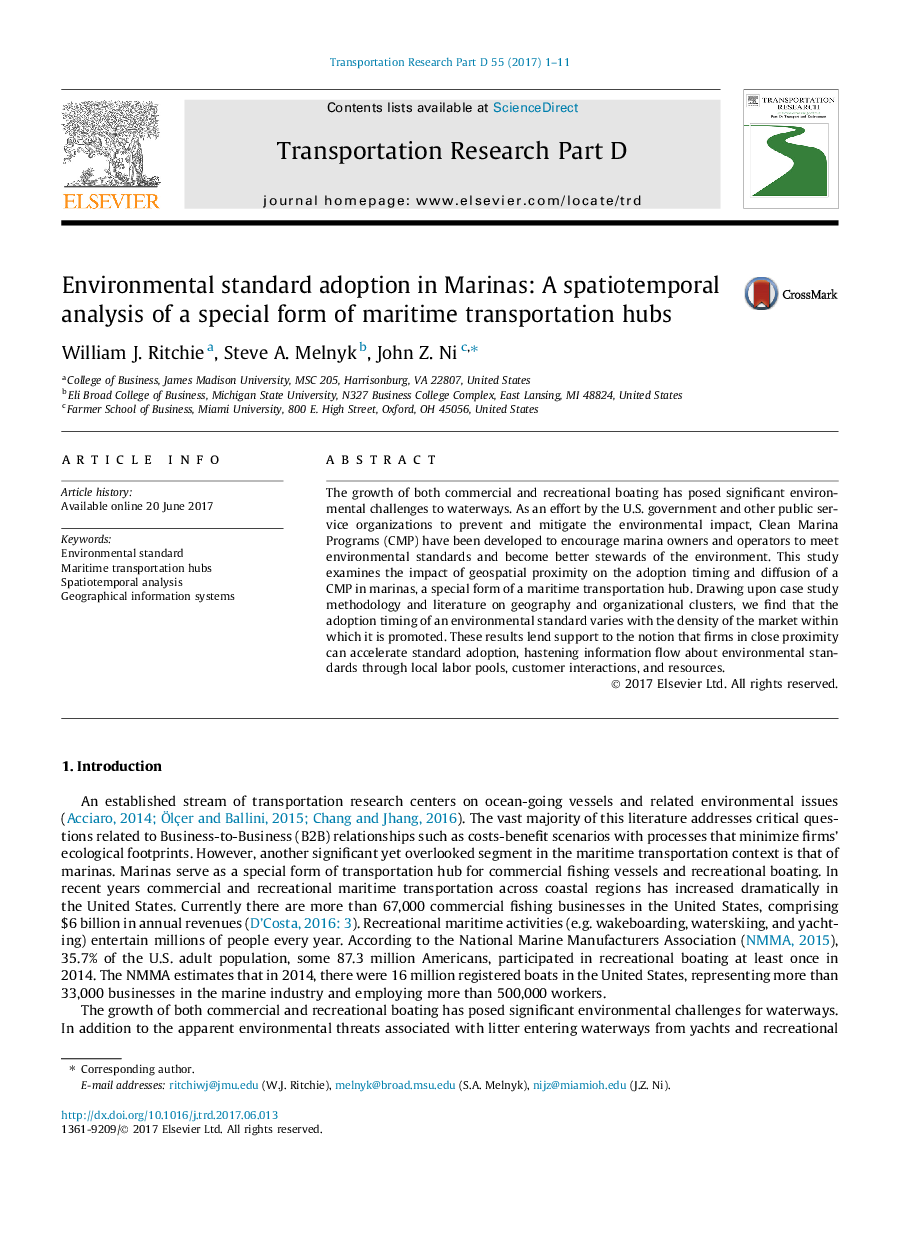| Article ID | Journal | Published Year | Pages | File Type |
|---|---|---|---|---|
| 5119361 | Transportation Research Part D: Transport and Environment | 2017 | 11 Pages |
â¢Adopting environmental standards depends upon the geography of maritime transportation hubs.â¢The maritime transportation hubs located in more concentrated markets are early adopters.â¢The maritime transportation hubs located in less concentrated markets are late adopters.
The growth of both commercial and recreational boating has posed significant environmental challenges to waterways. As an effort by the U.S. government and other public service organizations to prevent and mitigate the environmental impact, Clean Marina Programs (CMP) have been developed to encourage marina owners and operators to meet environmental standards and become better stewards of the environment. This study examines the impact of geospatial proximity on the adoption timing and diffusion of a CMP in marinas, a special form of a maritime transportation hub. Drawing upon case study methodology and literature on geography and organizational clusters, we find that the adoption timing of an environmental standard varies with the density of the market within which it is promoted. These results lend support to the notion that firms in close proximity can accelerate standard adoption, hastening information flow about environmental standards through local labor pools, customer interactions, and resources.
